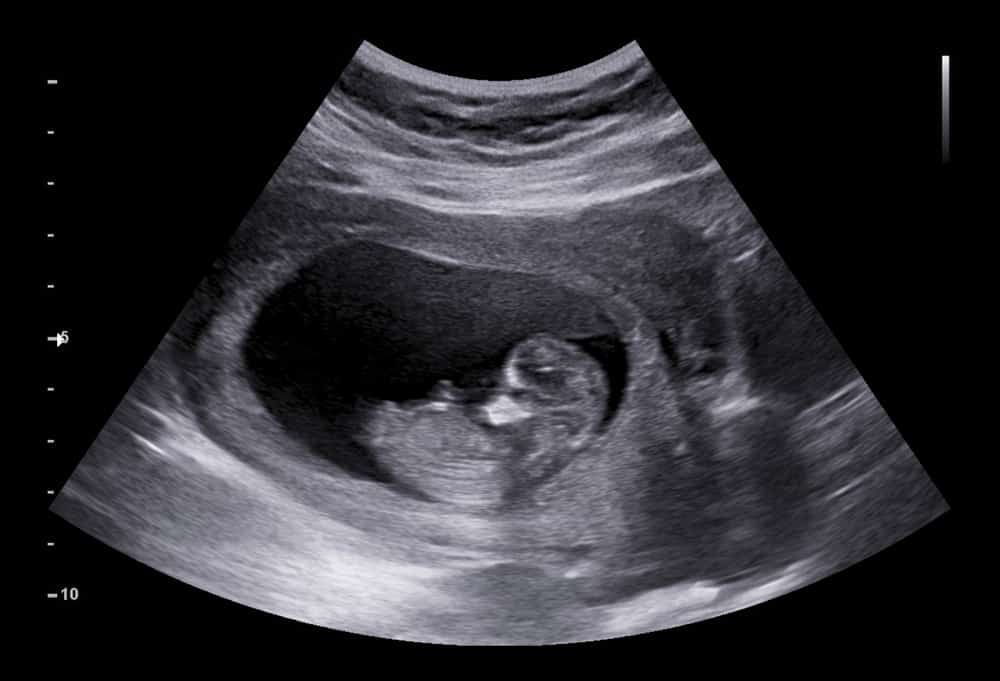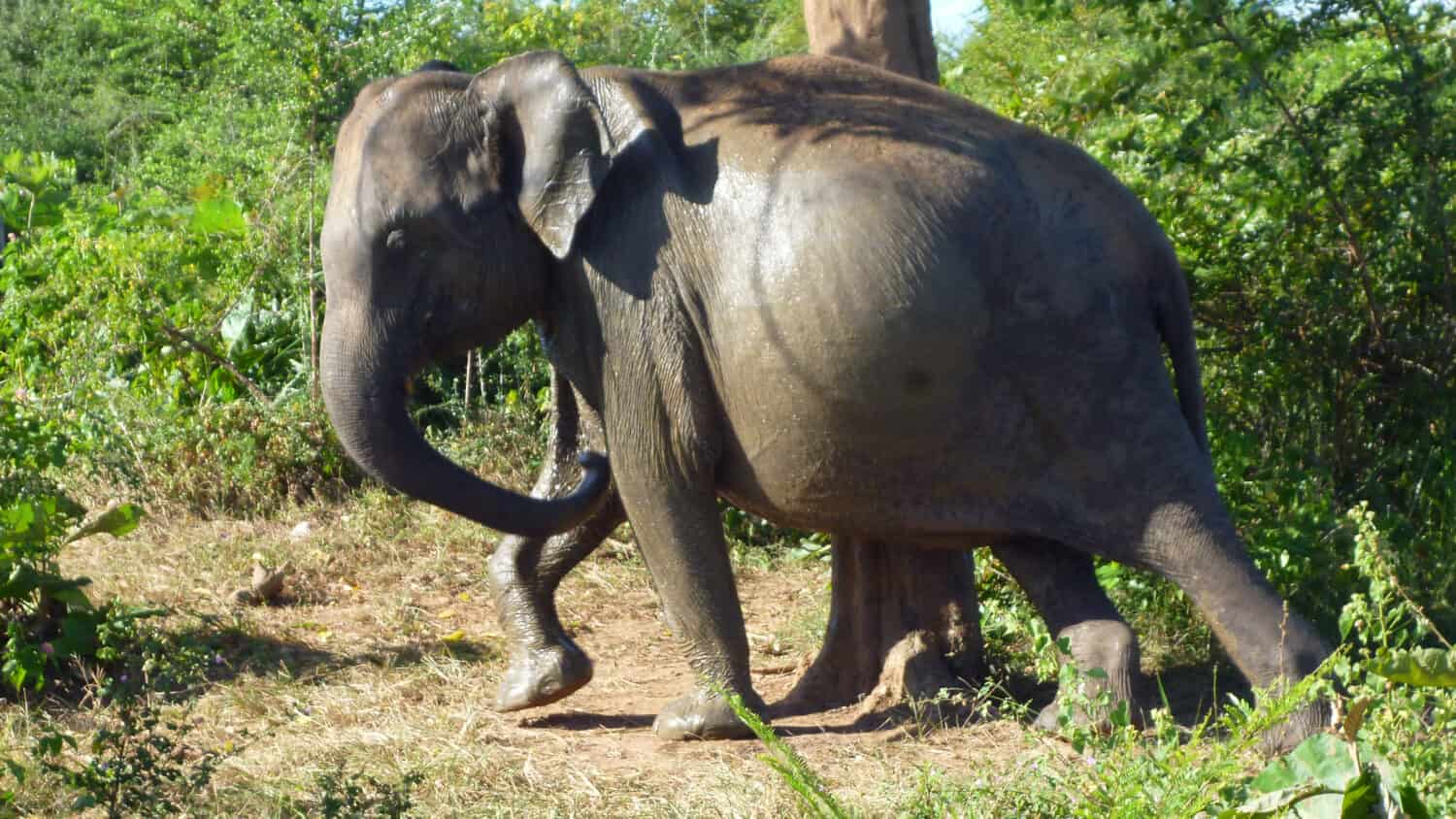The gestation period is the amount of time a female is pregnant, and this time varies widely depending on the species. For humans, it’s usually between 38 weeks and 42 weeks. Also, in humans, the gestational period is measured in weeks. With animals, the time from conception to delivery might be in days or even years, depending on the animal.
Human Gestational Age
Human gestational age is the determining factor for measuring how far along a pregnancy is. Many factors determine gestational age, including the developmental stages of the human embryo and the fetus. Fingers, toes, movement, and the formation of various physical traits are all included in gestational age.

This ultrasound of a 12-week-old shows a baby in the fetal stage, which typically begins at 11 weeks.
©AePatt Journey/Shutterstock.com
Gestation begins on the first day of a female’s last menstrual cycle and continues until birth. The reason the first day of the last menstrual cycle is used is that, even with all of today’s technology, doctors still can’t pinpoint a precise date of conception.
Gestational age is also divided into two categories: the embryonic stage and the fetal stage. The embryonic stage begins at week 5 of pregnancy. The fetal stage immediately begins at 11 weeks and ends on the day of delivery.
Gestational Age and Fetal Age
The fetal age is a way to date the gestation period from an assumed date of conception. Where gestational age is almost always two weeks off, fetal age is probably closer to the real date, though it’s an imprecise age.
Gestation Period in Animals
Gestational periods for animals are all over the place. For instance, elephants have the longest gestation period of all mammals at approximately 660 days, while badgers have gestation periods of around 42 days. Both are mammals, yet the difference in gestational period is quite drastic.

Elephants’ gestation periods last nearly two years!
©StahlWerk/Shutterstock.com
When it comes to birds, the gestation period for a budgerigar is 17 days, 20 days for chickens, and 30 days for muscovy ducks.
The velvet worm has a gestation period of 15 months and black alpine salamanders can remain pregnant for up to 3 years.
Orcas have a gestation of around 17 months, with some whales going as far as 19 months. From the very small to the very large, the disparity in gestation periods among the world’s animals is quite large.



